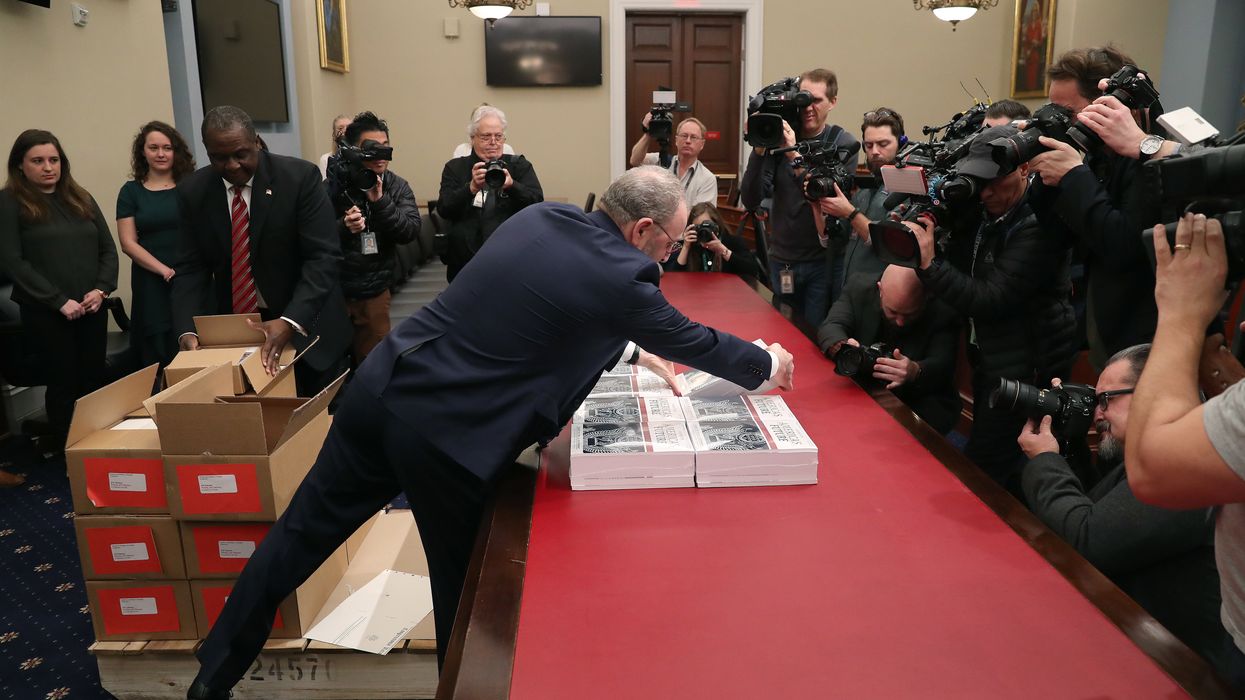President Trump's proposed budget for next year includes a mix of good and bad news for those interested in democracy and elections.
The plan he unveiled Monday would cut spending 14 percent at the Election Assistance Commission, the federal agency tasked with making sure voting machines are reliable and therefore at the center of efforts to prevent foreign hacking. The $2 million reduction for the fiscal year starting in October would come just as the office is starting to recover after a long run of staffing and budget cuts.
At the same time, the budget calls for spending $1.1 billion on cybersecurity through the Department of Homeland Security. This would increase from 1,800 to more than 6,500 the number of network assessments the agency can conduct, including those of "state and local electoral systems," the budget proposal says.
And the budget of the Federal Election Commission, which oversees compliance with campaign finance laws by presidential and congressional candidates, would tick up 2.5 percent to $73.3 million under the Trump budget, about in line with expected inflation. Since September, however, the FEC has not been able to take any enforcement actions because there are not enough commissioners to constitute a quorum.
The EAC is among dozens of domestic agencies and programs that would get reduced or altogether eliminated under Trump's $4.8 trillion election-year proposal, including an 8 percent cut at the Department of Education and a shrinking of the Environmental Protection Agency's current budget by more than a quarter.
The president's plan assumes the deficit will crest above $1 trillion this year but promises the federal books will be balanced 15 years from now, mainly thanks to optimistic assumptions about the economy mixed with cuts to social safety net programs and a reduced American presence overseas.
Having suffered from years of budget cuts and staff turnover, the EAC is just now trying to rebuild itself in the months leading up to the fall presidential election.
Congress nearly doubled the EAC budget to $15.2 million for this year, and over the past two years has approved $805 million in state grants to bolster the security of local election systems. The EAC administers those grants.
State election officials have said they need a steady stream of federal funding to keep up with the costs of maintaining and improving election equipment. But the Trump budget does not call for any additional grant funding for next year.
The budget is more a messaging document than anything else, however. Ultimately, Congress has the obligation to write the line-by-line spending plans for all the parts of the federal government where spending is discretionary. (Spending on Medicare, Social Security and interest on the debt are mandatory and not subject to the annual appropriations process.) In recent years, however, instead of passing individual bills that cover groupings of federal agencies, omnibus budget legislation covering the entire federal government has been worked out in negotiations between Capitol Hill leaders and the White House.
A deal last fall between Trump, the Democratic House of Representatives and the GOP Senate for two years of modest domestic spending increases would be essentially scrapped under Monday's budget.





















Why does the Trump family always get a pass?